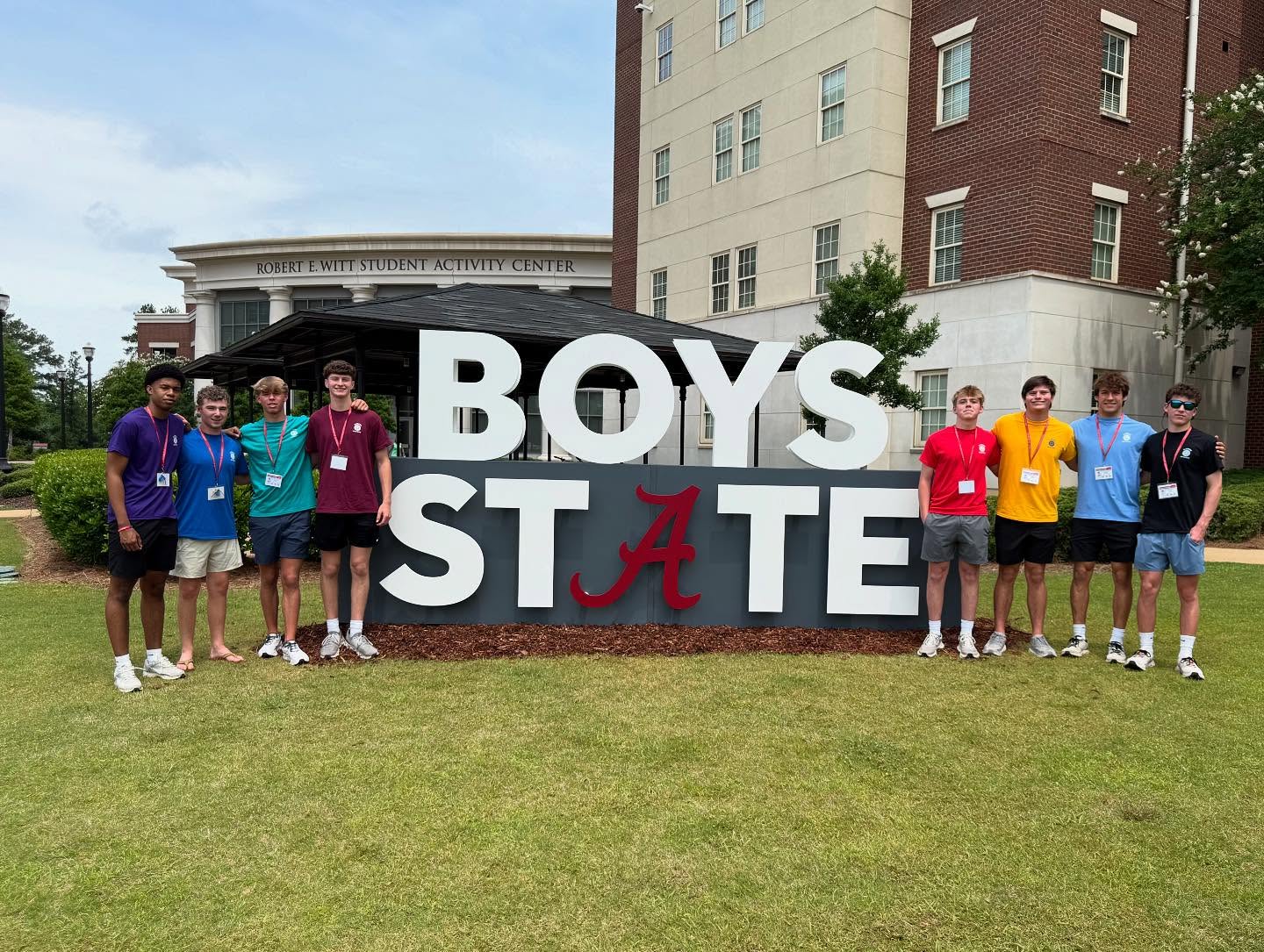988 line offers alternative to 911 for mental health crises
Published 10:30 am Friday, July 15, 2022
Health officials are hopeful the July 16 launch of the nationwide 988 mental health crisis line will help reduce suicides and increase efficient responses to mental health crises.
The national 988 initiative, authorized in 2020, hopes to be more effective and reach more people with an easy to remember number — compared to the current National Suicide Prevention Lifeline, 1 (800) 273-8255 (TALK), which will still be available.
“The big challenge with calling 9-1-1 if you’re in a behavioral health crisis is that the only option you have at that point is for either EMS or law enforcement to be deployed, and sometimes they deploy both. and unfortunately, in most cases, the only place you can go if EMS or law enforcement comes to address is jail or the emergency department.”Alabama Department of Mental Health Commissioner Kimberly Boswell said.
The 988 line, launching July 16, will available 24/7 via phone call or text.
The system aims to serve as a safety net to de-escalate mental health crises and reduce the need for law enforcement response by connecting individuals to mental health services or resources.
“What we know is for people who are in psychiatric distress, a trained professional, a mental health professional is likely to be the most appropriate individual to respond,” said Judy Fitzgerald, commissioner of the Georgia Department of Behavioral Health and Developmental Disabilities. “So the hope is that over time, people who use 911 for that purpose will grow to learn 988 as the correct and the fastest way to get the right kind of response that’s matched to what the need actually is.”
When someone calls, chats or texts 988, they will be connected to a crisis specialist who is trained to deliver support to anyone experiencing or witnessing a crisis— whether substance abuse issues, signs and symptoms of mental illness, or contemplation of suicide, which is the 12th leading cause of death in the country, according to the Centers for Disease Control and Prevention.
The majority of mental health related calls, approximately 80 percent, are typically resolved via phone and result in a referral to a crisis center or tele-crisis counseling, according to Boswell. Other calls could require mobile crisis or first responder response; though mobile crisis teams aren’t available in every county and do not respond to all calls, they can travel to any area — however, response times may be longer.
Alabama eventually plans to have mobile crisis teams available to respond to all crisis center calls, but for now those teams are primarily in rural areas where transportation may be a barrier, Boswell said.
“Just like if you call 911 right now and you’d have a health-related issue, you get EMS,” she explained. “If you call 988, you’re gonna get a mobile crisis team with a mental health professional and case manager and a peer support specialist who can address your behavioral health crisis.”
Referrals are often made to the crisis centers, which are voluntary for those in need of mental health help. There are extreme situations where someone can proceed with an emergency civil commitment if the caller poses severe risk of harm to themselves or others.
“It’s kind of interesting that people who are resistant to agreeing to go to a hospital tend to agree to go to one of our crisis centers because it’s a very non-threatening environment for them and they don’t feel like they’re going somewhere where once they’re there, nobody’s going to let them go,” Boswell said.
In Alabama, 988 calls will be answered by The Crisis Center Birmingham and Crisis Services of North Alabama in Huntsville.
There are currently three operational crisis centers around the state that provide temporary observation, assessments and screenings and impatient stay if needed. Three more will be coming on line within the next year in Birmingham, Dothan and Tuscaloosa, according to Alabama health officials.
Fitzgerald anticipates a more smooth transition in Georgia to the 988 system compared to other states, as it already had its own 24/7 crisis line (Georgia Crisis and Access Line, 1-800-715-4225) for nearly 15 years. That line will also still be available.
“In the last 20 months, the state of Georgia invested an additional $20 million for additional workforce to answer the phones, and and we’ve also added some more capacity in community settings around the state with this anticipation that there would be increased demand,” Fitzgerald said. “We’ve already seen increased demand, and we know that 988 is great for reducing stigma and we also know that it will likely increase demand.”
No noticeable changes to response mechanisms will likely occur, according to health officials, who say responders and providers will continue to follow protocol already in place at the national and state levels for crisis line calls.
The conversation on the call may include assessment, stabilization, referral and follow-up for those at high risk for suicide and/or poor mental health outcomes. If a higher level of care is needed, the crisis specialist will work with the caller to connect them to a mobile crisis response team to respond, inform them of the nearest Crisis Center or relay the call to emergency responders, if needed, Alabama Department of Mental Health states. Individuals can also be directed or transported to nearby crisis centers if temporary or extended observation is desired or recommended.
This year, Georgia legislators added funding in the state’s budget for mental health, allowing the state to increase crisis bed capacity, and increase access to outpatient mental health and substance abuse services.
“There was a $17 million investment, and that’s statewide, so that local community providers can make it easier and there’s more ready access before the point of crisis, because that’s also what we’re trying to build here,” Fitzgerald said.
Georgia and Alabama are among 23 states that have a crisis center call answer rate of less than 70 percent, according to data from Vibrant Emotional Health, the administrator of the National Suicide Prevention Lifeline.
Among the more than 6,500 crisis calls received in Alabama between Jan. 1 to March 31, 62 percent were answered via in state call centers. Boswell is confident that the answer rate will increase due to funding received under the 988 initiative to add additional lifeline centers and staff.
“It was really a challenge for our existing lifeline centers to respond to all of those calls and so with adding those additional centers, we believe we can get our call rate in Alabama up significantly,” Boswell said. “We are a little bit worried we’re going to see a big spike in call volume. Once people have that number are we going to see a spike in calls? What we know from other 911 data, historically, is it starts kind of slow, but then all of a sudden when people realize they really can get help when they call that number, you start seeing a pretty big increase.”
For Georgia, of the more than 14,200 crisis calls that were received during that time period, 66 percent were answered in-state, with the other calls directed to out-of-state call centers.
Additional funding and resources have been applied to answering more calls, Fitzgerald said, adding that the state has, however, increased its speed in answering calls.
“Through investments that we’ve made, enhancing technology and adding more licensed and trained individuals, we really focused on that speed of answer to pick up those calls, and we were able over a four month period to receive those calls and reduce the average speed of answer to under one minute,” Fitzgerald said. “And since May, our average speed of answer in Georgia is now down under 30 seconds for those calls. So we feel like we’re meeting those challenges with some enhanced resources and really making tangible improvements in our ability to answer the call.”
In December 2021, the Department of Health and Human Services announced $282 million to help with the transition, with $105 million to build up staffing across states’ local crisis call centers.
While some states have already approved adding a fee to phone bills to cover the long-term operation of the system, Alabama and Georgia health officials will wait to see how the system pans out before determining future funding sources.
“Saturday’s launch will be really a long journey in transformation of our crisis system here,” Fitzgerald said. “We know that these represent families, individuals, in need of help at a moment in their life that can be really challenging, and we are on our way to building a system that can be responsive to those ever increasing needs, and so we’re excited to have the opportunity.”





